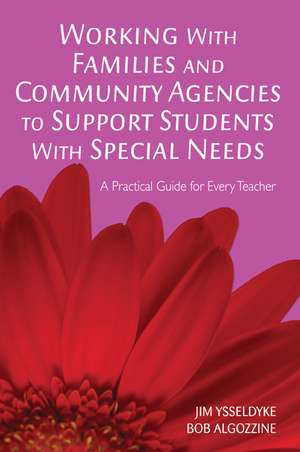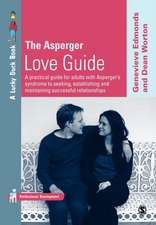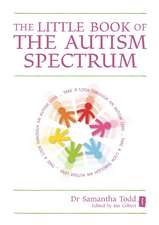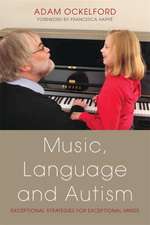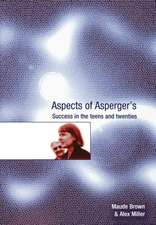Working With Families and Community Agencies to Support Students With Special Needs: A Practical Guide for Every Teacher
Autor James E. Ysseldyke, Bob Algozzineen Limba Engleză Paperback – 22 mai 2006
o What types of transition services exist and when are they necessary?
o What should educators know about early-childhood intervention?
o What issues should be considered when working with families?
o How can schools involve community agencies and businesses?
o What options are available to students with special needs after high school?
o What key elements are critical to a student's success in the classroom and beyond?
| Toate formatele și edițiile | Preț | Express |
|---|---|---|
| Paperback (1) | 180.99 lei 6-8 săpt. | |
| SAGE Publications – 22 mai 2006 | 180.99 lei 6-8 săpt. | |
| Hardback (1) | 443.01 lei 6-8 săpt. | |
| SAGE Publications – 22 mai 2006 | 443.01 lei 6-8 săpt. |
Preț: 180.99 lei
Nou
34.63€ • 36.23$ • 28.77£
Carte tipărită la comandă
Livrare economică 03-17 aprilie
Specificații
ISBN-10: 1412938988
Pagini: 120
Dimensiuni: 152 x 229 x 8 mm
Greutate: 0.2 kg
Ediția:1
Editura: SAGE Publications
Colecția Corwin
Locul publicării:Thousand Oaks, United States
Recenzii
Cuprins
Acknowledgements
About the Authors
Self-Assessment I
Introduction to Working With Families and Community Agencies to Support Students With Special Needs
1.What Should Every Teacher Know About Early Childhood Intervention?
Federal Laws and Incentives
Direct and Indirect Services
Home-Based Programs
Hospital- or Center-Based Programs
Does Early Intervention Help?
2.What Are Transition Services and When Are They Necessary?
Transition into School
Transition During School
Everyday Transitions
Transition in General Education Classrooms
Dropping Out of School
Post-School Transition
3.What Living Arrangements Are Available to Adults With Special Needs?
Group Homes
Alternative Living Units
Foster Homes
Independent Living
Institutions
4.What Issues Should Be Taken Into Consideration When Working With Families?
How Exceptionalities Affect Families
Effects on Family Structure
Family Concerns
Transition to School
Adolescence
Post-School Transition
Concerns of Families With Children Who Are Gifted
What the Research Says
Change Over Time
Types of Family Involvement
Overcoming Barriers to Home-School Collaboration
5.How Should Schools Involve Community Agencies and Businesses?
Business Involvement
Special Programs
6.What Are the Keys to Success in the Wider Context?
Individualized Planning
Commitment to Normal Life Experiences
Compatible Physical Environment
Commitment to Remedial Programming
Encouraging Appropriate Behavior
Lifelong Learning
7.Working With Families and Agencies in Perspective
8. What Have We Learned?
Key Points
Key Vocabulary
Self-Assessment II
Answer Key for Self-Assessments
On Your Own
Resources
Books
Journals & Articles
Organizations
References
Index
Notă biografică
Jim Ysseldyke, Ph.D., is Birkmaier Professor in the Department of Educational Psychology, director of the School Psychology Program, and director of the Center for Reading Research at the University of Minnesota. Widely requested as a staff developer and conference speaker, Ysseldyke brings more than 30 years of research and teaching experience to educational professionals around the globe.
As the former director of the federally funded National Center on Educational Outcomes, Ysseldyke conducted research and provided technical support that helped to boost the academic performance of students with disabilities and improve school assessment techniques nationally. Today, he continues to work to improve the education of students with disabilities.
The author of more than 300 publications on special education and school psychology, Ysseldyke is best known for his textbooks on assessment, effective instruction, issues in special education, and other cutting-edge areas of education and school psychology. With A Practical Approach to Special Education for Every Teacher, Ysseldyke seeks to equip educators with practical knowledge and methods that will help them to better engage students in exploring¿and meeting¿all their potentials.
